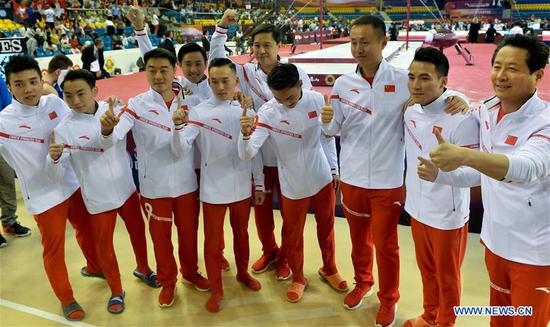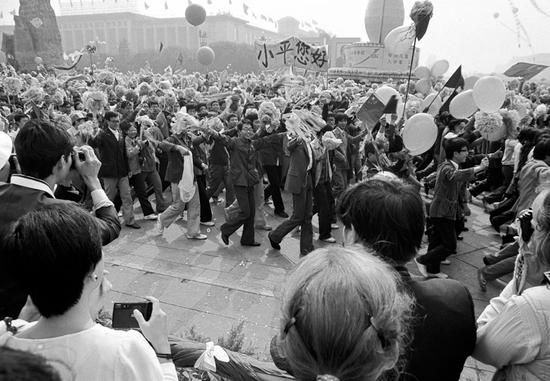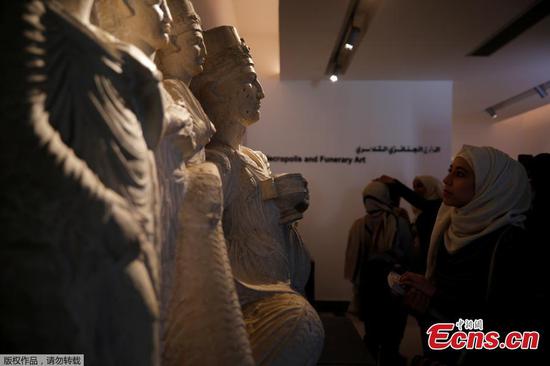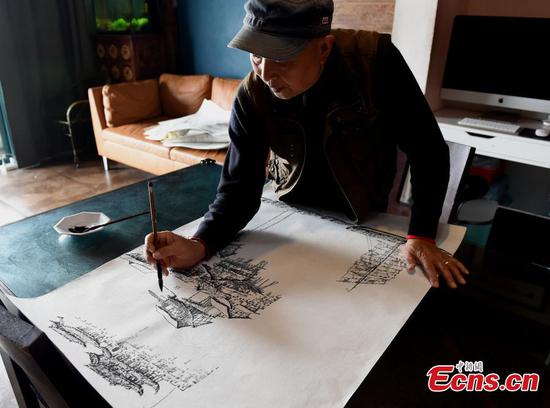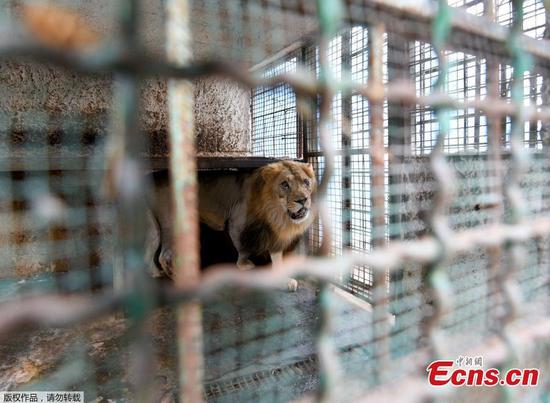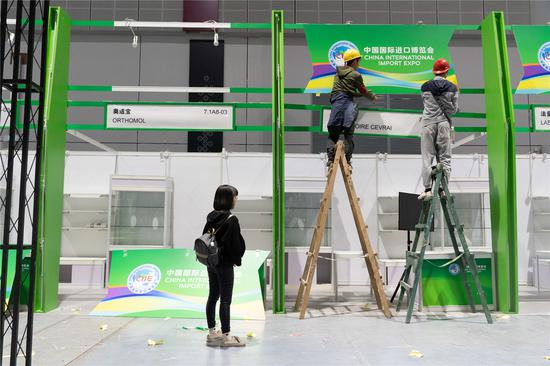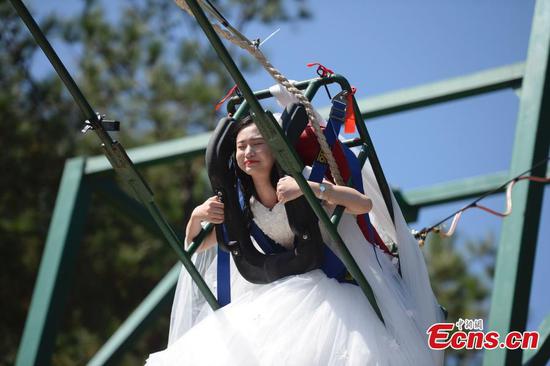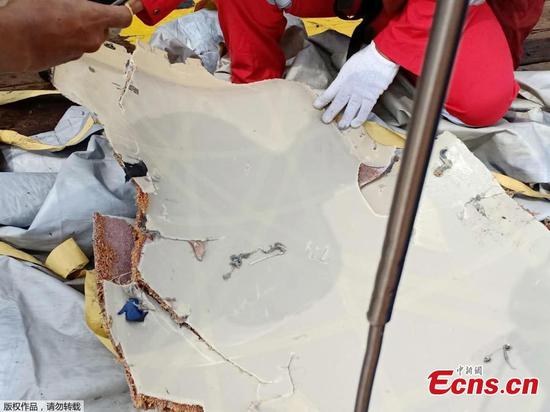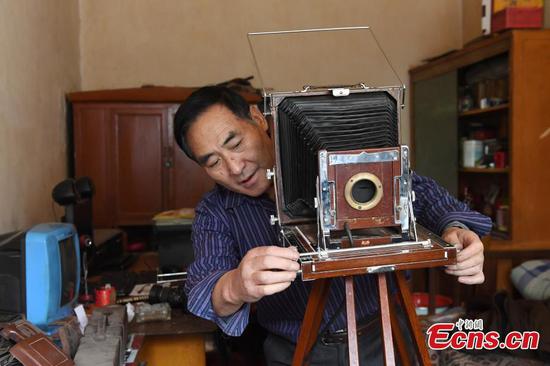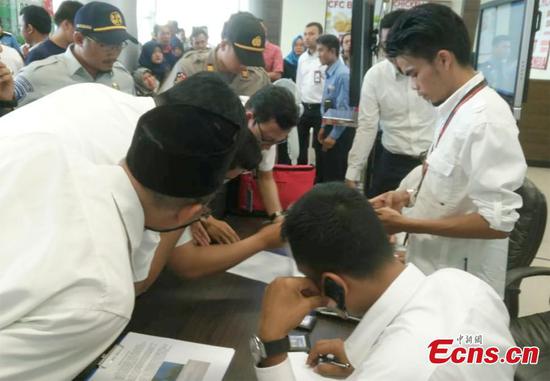When Xu Zhihong and his wife Zhou Xihua heard their twin son Xu Jian say his first word, they both wept.
The couple had waited so long to hear him speak; his first utterance came 10-months later than what they were told was "ordinary." They felt they couldn't ask for more from a child born without hearing. Or could they?
BREAKING THE SILENCE
On Sept. 7, 1994, when Zhou and Xu welcomed their twins into the world in their home region of Xinjiang in northwest China, the couple were ecstatic. They named them Jian and Kang, the Chinese characters for healthiness.
But life did not turn out like what they had wished for.
"At first, we noticed that Xu Jian never reacted to the sound of bike bells," Xu Zhihong said, recalling how little Jian was unresponsive to noises.
When they took him to see the doctor, the diagnosis was what they had feared.
"Our boy can't hear a thing. He can only feel vibrations" said Xu.
They took Jian to the best hospitals in Beijing and Shanghai, and even tried alternate therapy. No matter what they did, where they went, the answer was always the same -- there was no cure, and the only way for Jian to learn to communicate was through sign language.
But his vocal system was intact, they couldn't comprehend why he couldn't be taught to talk, just like everyone else. In their search, they transcribed Helen Keller's autobiography, "The Story of My Life."
Keller's teacher Anne Sullivan always took pens with her, and so did Xu and Zhou. When they would see a tree, they wrote down the Chinese character "shu" for "tree" on the boy's hands and on their arms, and shouted again and again, "Shu! S-H-U!"
To show him how his vocal cords and tongue worked, they put Jian's hand on their throats and tongues so he could feel every syllable.
To teach Jian the word for "cattle", his first word, they took him to see a herd daily and told him; "Niu! N-I-U!"
Xu said that one occasion is burnt into his memory. The family sat on the slope, waiting for the herd to show up, and a heavy sadness washed across Xu. He could hear the babbling of a brook down the hill, birds chirping in the trees, tree leaves rustling in the evening breeze. But in his son's world there was just silence.
Jian's breakthrough came three months later when he uttered the word "niu". Xu and Zhou were thrilled, knowing that their notes and labels, which were pinned and stuck everywhere at home, were working.
Within a year of that first word, Jian had a vocabulary of 300 Chinese words and was able to have simple conversations.
Just as the family were celebrating their success, a cruel twist of fate came again. Jian's brother caught a cold and was left deaf by medicine. Pulling themselves together, the couple began to teach Kang in the same way, with the same dedication.
As teachers at a local primary school, Xu and Zhou once barely made ends meet. They sold almost everything and moved a dozen times for cheaper rents.
They channeled all their focus on teaching their sons, using methods they created themselves. They managed to scrimp and save to pay for a cochlear implant for Jian in 2006 and later a hearing-aid for Kang.
The two boys attended mainstream school. They have just graduated from college and are now starting their careers as special education teachers.
HELPING THE DESPERATE
Soon after Xu and Zhou helped their sons talk, desperate parents were knocking at their door for help. The couple did not turn away one person. They became well-known among parents whose children suffer from hearing defects.
Over the past two decades, they have helped and inspired more than 200 children, who still affectionately call them Papa Xu and Mama Zhou.
Xinjiang is home to 47 ethnic groups. Although the autonomous region today has more nursing and caring support for disabled children, special education schools are still short of teachers who can speak both Mandarin and at least one local ethnic minority language.
In 2000, four-year-old Lu Yanzi was brought to the couple for help. Xu said OK without hesitation.
"I wanted to help the family, just as many people had helped me," said Xu, "Looking at the yearning in their eyes, how could I refuse them?"
Lu was the couple's first student on special education. Born without hearing, Lu hardly ever smiled and had behavioral difficulties, said Lu's parents.
The first thing Lu's parents need to do was to rebuild the confidence. "We must be the cheering team. We must keep encouraging the kids," said Xu.
They would reassure each child that they were not much different from others. "If you are short-sighted, you can wear glasses. If you can't hear, you can wear an hearing-aid. You are just the same as everyone else," said Xu.
Within six-months, Lu had made her first sound.
"Life is better than a textbook," said Xu. They took the children to the park and the field and let them see, touch and smell everything, and feel the wind and sunshine.
Lu's success was their best advertisement. For a while their home was so crowded with children that they had to rent another house. Every day they got up at 7 am to go to work and wouldn't bed down until 2 am the next day.
After Xu and Zhou established their center for the hearing impaired in 2007, the miracles kept happening.
Three-year-old Gulifila learned to sing 40 songs within three months. Six-year-old Ulan made his father cry when he learned to say "dad" in a month. 16-year-old Dandan managed to find a job after six months' training.
The local government granted the center special education school status in 2011. Today Xu, Zhou and 16 teachers offer free education to 73 students.
Nazray Tulusbek, 8, and her brother Alapar Tulusbek, 10, have been studying here for four years. Their father Tulusbek Hamit, a herder, still remembers how difficult it was balancing the nomadic lifestyle with the needs of his children.
"I would have given anything to help them talk, even sell my flock," he said. He was advised to send the children to Xu's training center.
One day, when he came to collect them up for the weekend. "As I walked in, I heard Alapar call me 'dad'. It was just three weeks!" said the father. He asked his son to keep saying "dad" all the way back home.
In 2016, the brother and sister received a government grant for a cochlear implant, which costs at least 140,000 yuan (20,550 U.S. dollars). It was a huge sum of money to a poor family.
Xu and Zhou remain committed to helping children make the most of their lives.
"We must teach them to become real people. They must be taught that they are not a burden, and that they can be independent and kind, and live like everyone else," said Xu.












